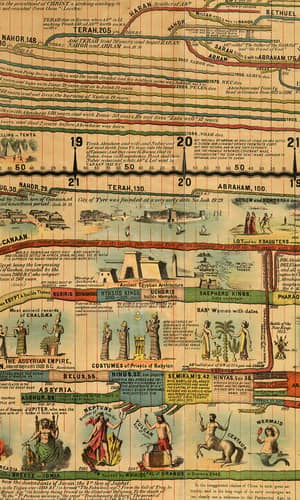Professional, peer-reviewed papers from the perspective of biblical authority on the topics of biblical chronology and the founding of nations after Babel.

Chronological Framework of Ancient History: Parts 1–5. Reply
Kenneth C. Griffith , et. al. • Oct. 2, 2024
The authors of the series, “Chronological Framework of Ancient History” respond to critiques.

Chronological Framework of Ancient History. Papers 1–5. Comments
Eric J. Tweedy • Oct. 2, 2024
The author calls some of the conclusions in an earlier series, “Chronological Framework of Ancient History,” into question.

The XIIIth Dynasty of Egypt and the Exodus
A. John M. Osgood • Sept. 18, 2024
This discussion presents a new arrangement, a different model of the XIIIth Dynasty for discussion.

Chronological Framework of Ancient History. Papers 1–5: Response
Kenneth C. Griffith , et. al. • Aug. 7, 2024
Griffith and White respond to Habermehl’s criticisms by demonstrating a model that integrates geological, archaeological, and historical records with the Ussher-Jones Chronology.

Chronological Framework of Ancient History. Papers 1–5: Comments
Anne Habermehl • Aug. 7, 2024
Anne Habermehl claims that the Griffith and White’s series, Chronological Framework of Ancient History, reinforces the longer Septuagint timeline.

Social and Religious Reproduction in the Family: Social Reproductive Failures Exemplified through the Lineage of Ham and Shem
Justin Singleton • June 5, 2024
This study will focus on presenting examples of the failure of Mitzraim, son of Ham, and of Shem to reproduce their father’s religious belief to their extending generations.
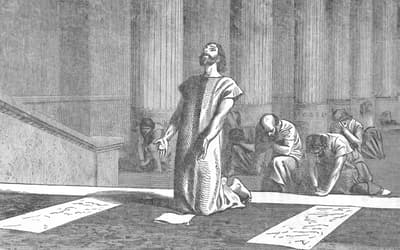
Hezekiah and Bible Chronology
A. John M. Osgood • May 1, 2024
Hezekiah’s rule is one which has been associated with significant chronological controversy, specifically a claimed 12-year gap.

The Place of the Exodus in Egyptian History: Further Comments
Anne Habermehl • March 13, 2024
In this second of a three-part series, Habermehl further discusses the placement of the Exodus in Egyptian history and methodology.

“Chronological Framework of Ancient History”: Reply
Kenneth C. Griffith , et. al. • Jan. 24, 2024
While we will answer the objections to our 2022 and 2023 papers here in a cursory manner, most of them will be thoroughly handled in the appropriate papers in the series.

“Chronological Framework of Ancient History”: Comments 2
Robert M. Porter • Jan. 24, 2024
This paper asserts that it is not possible to run the Egyptian Old and Middle Kingdoms in parallel and that the date of the Trojan War is not necessarily that provided by ancient Greek historians.

“Chronological Framework of Ancient History”: Comments 1
A. John M. Osgood • Jan. 24, 2024
This paper maintains that we all want a good correlation of the archaeological record with the Bible, but Griffth and White’s ARJ papers of 2022–3 are not the way to achieve it.
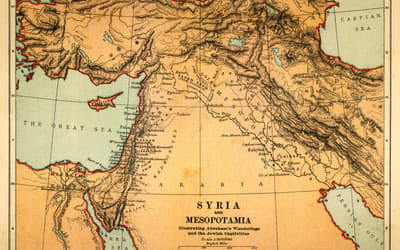
Chronological Framework of Ancient History. 5: The Babylonian Dynasties of Berossus
Kenneth C. Griffith , et. al. • Dec. 20, 2023
The Babylonian dynasties of Berossus are incomplete. The authors solve for the missing values. The resulting table of Berossus covers the era from the Flood to the conquest of Babylon by Cyrus.
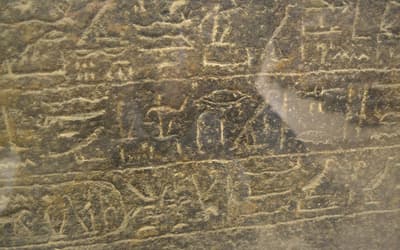
Synchronization of the Biblical and Egyptian Timelines
Anne Habermehl • Nov. 8, 2023
In this paper we will show that the biblical and Egyptian chronologies produce timelines that diverge greatly back before about 600 B.C.

Integrating Historical Witnesses in Biblical Chronology
Renae Beckman • Oct. 25, 2023
This paper compares the two chronological approaches and highlights a wide array of historical texts and archaeological finds relevant to dating events in the Old Testament.
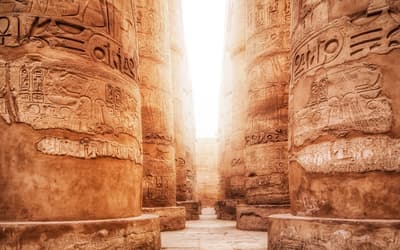
Chronological Framework of Ancient History. 4: Dating Creation and the Deluge
Kenneth C. Griffith , et. al. • Sept. 20, 2023
This is the fourth paper in a series with the goal to build a model of ancient history consistent with the biblical text using durations by ancient chroniclers.

Chronological Framework of Ancient History. 3: Anchor Points of Ancient History
Kenneth C. Griffith , et. al. • March 22, 2023
Having triangulated the dates for Babel and the Dispersion in the previous paper the authors triangulate the dates for 27 major events in ancient history.
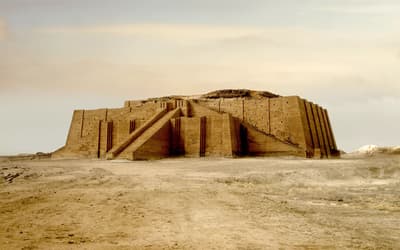
Chronological Framework of Ancient History. 2: Founding of the Nations
Kenneth C. Griffith , et. al. • Dec. 14, 2022
This paper is the second in the series and continues the process of systematizing the chronology of the ANE using the durations given by the ancient chroniclers.

Chronological Framework of Ancient History. 1: Problem, Data, and Methodology
Kenneth C. Griffith , et. al. • Nov. 16, 2022
This series of papers makes the case that a broad consensus of ancient sources speaks in harmony with Ussher’s chronology of the Bible.
Biblical Chronology in Answers Research Journal
The origin of post-Babel civilizations has both fascinated and challenged biblical scholars. The Bible gives us a guideline to the migration of people groups after leaving Babel (Genesis 10). And many people groups are mentioned over and over again in the Old Testament (as are the Romans in the New Testament).
The focus of these papers in Answers Research Journal (ARJ) is to align biblical and secular chronology with Old and New Testament history. These professional, peer-reviewed papers challenge reconstructions of human history that extend beyond the human dispersion from Babel. They present alternate models that fit within the biblical framework, and they critique or revise models that fail to align with either the Bible’s narrative or extrabiblical evidence from the ancient world once aligned with Scripture. Our journal considers the sequence of chronology through the disciplines of biblical scholarship, geology, archaeology, and more.
The kingdoms of Philistia, Canaan, Amalek, Moab, the Amorites, Assyria, Babylon, Persia, Greece, and many others feature repeatedly in the Bible’s account. Discussions about these and other synchronisms are vital for correctly aligning the chronology in the Bible with secular historical records.
